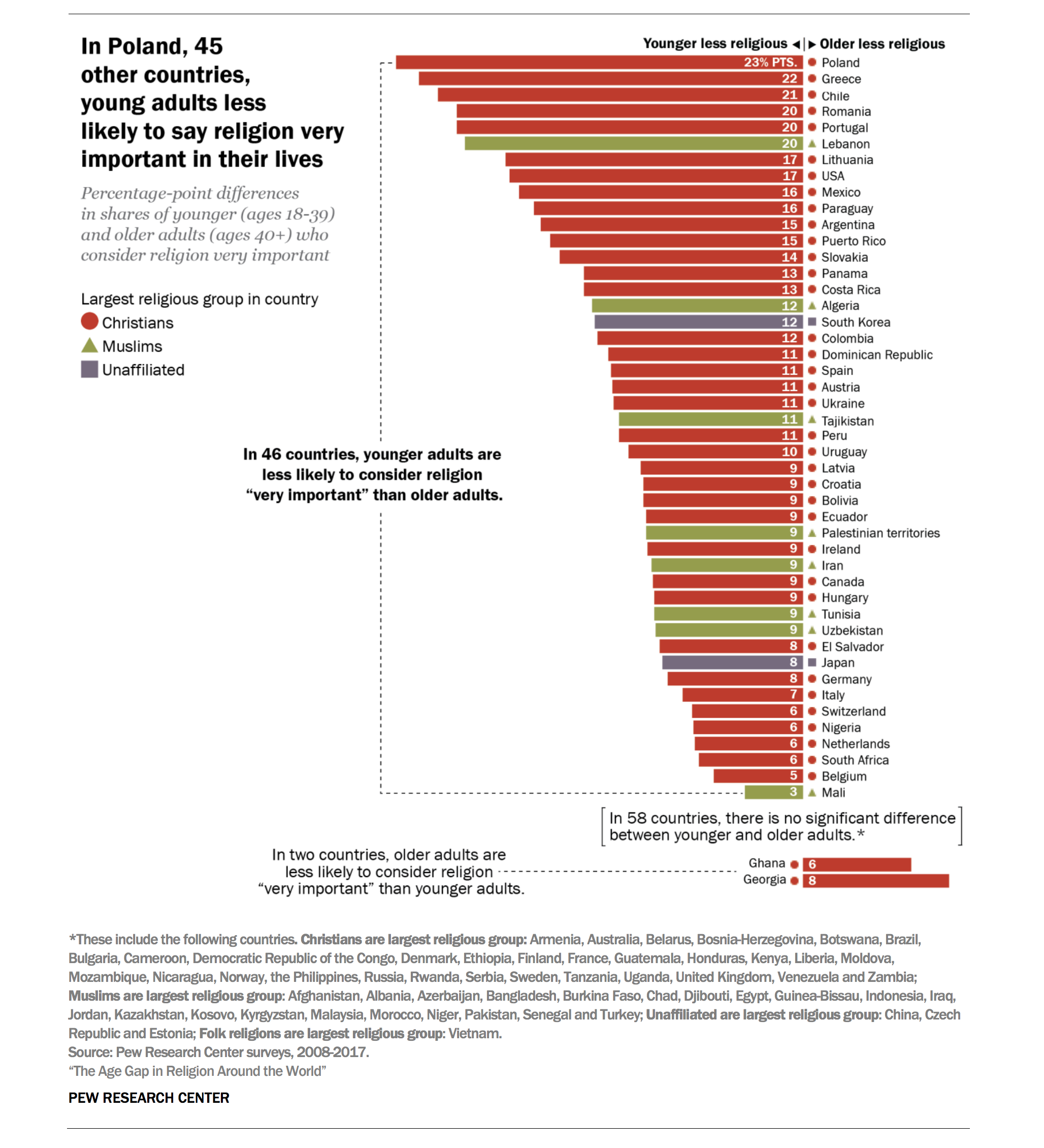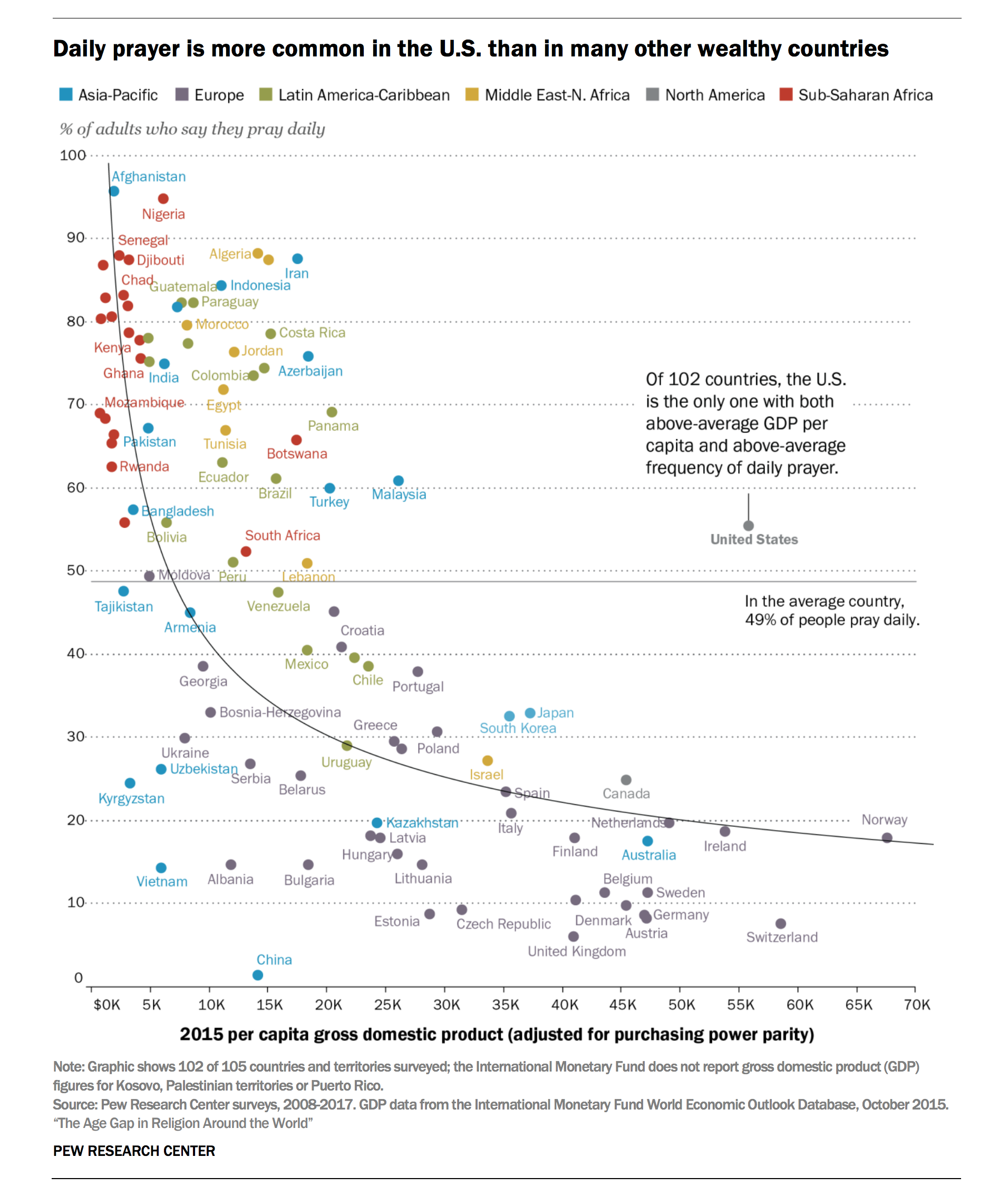
It’s no surprise to learn that young people in the United States are less religious than the rest of the population. Now, a new study from the Pew Research Centre finds that the same pattern holds throughout the world (with few exceptions).

The analysis of more than 100 countries found that young people are less religious no matter what else is happening in the countries.
Although the age gap in religious commitment is larger in some nations than in others, it occurs in many different economic and social contexts — in developing countries as well as advanced industrial economies, in Muslim-majority nations as well as predominantly Christian states, and in societies that are; overall, highly religious as well as those that are comparatively secular.
Only two nations — Georgia (the former Soviet republic) and Ghana (in West Africa) — had young people who were more religious than the adults.
There are two charts you should really look at.
The first shows you the gap between young and old when it comes to how important religion is in their lives:

That is a gorgeous chart. It’s not that young people are somewhat less religious than their parents. They’re running the hell away from religion all over the world.
Read:
Religion is outdated in the Twenty-First Century
Flat Earth and Geocentric Universe in Quran
The Expanding Universe vs Quran
Origin of Monotheism
Some conservatives may argue that’s a bad thing: Less religion must mean more chaos, more violence, more depression. But another series of charts shows that’s not the case at all. In fact, the analysis shows, “Religious commitment is lower in countries with higher education, higher GDP and greater income equality.”
Just look at this chart comparing a nation’s wealth to how much they pray. It’s obvious that when your country’s GDP is high, people are less likely to resort to irrational thinking.

Yonat Shimron of Religion News Service notes that the “survey suggests that even if today’s younger adults become more religious over time, they will likely be less religious than previous generations.”
Shimron also reminds us that, despite the overall trend, the world may not be getting more secular. That’s because the most religious nations in the world (mostly Muslim) are still churning out babies faster than the rest of world.
But when the trends are changing this much, this quickly, it’s foolish to assume that children will remain in their parents’ faith.
Pew put forth a number of intriguing explanations as to why so many young people are losing their religion. Education can play a role, as rising educational opportunities are usually — but not always — linked with lower levels of religious faith. Furthermore, as people age, have children and start contemplating their own mortality, they often grow more religious. Another theory is that new generations become less religious in tandem with economic development — as collective worries about day-to-day survival become less pervasive and tragic events become less frequent.
“According to this line of thinking, each generation in a steadily developing society would be less religious than the last, which would explain why young adults are less religious than their elders at any given time,” Pew said.
Thank you for reading!

